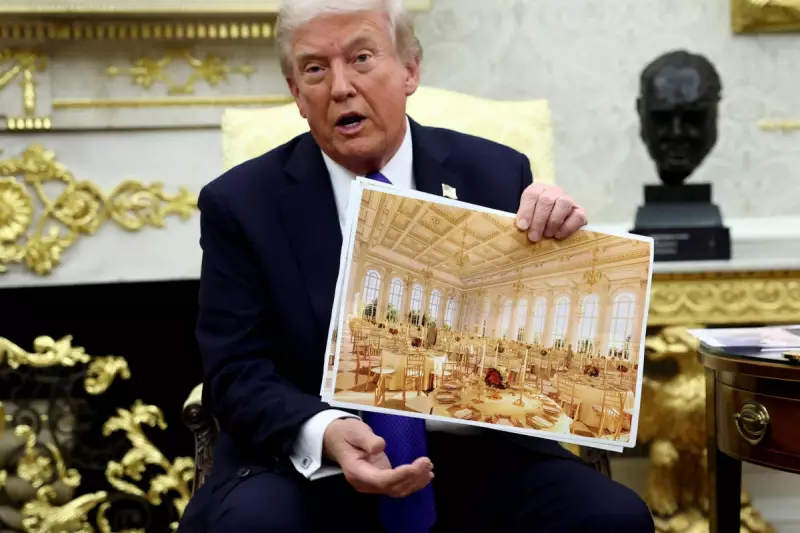
Democratic lawmakers have launched a significant legislative challenge to President Donald Trump's controversial $300 million ballroom project, introducing new measures designed to prevent potential corruption and ensure transparency in the funding of White House renovations.
The Stop Ballroom Bribery Act
Massachusetts Senator Elizabeth Warren and California Representative Robert Garcia unveiled the Stop Ballroom Bribery Act on Tuesday 18th November 2025. This proposed legislation directly targets the financing arrangements for President Trump's ambitious 90,000 square-foot gilded ballroom, which requires the demolition of the White House's East Wing.
"Billionaires and giant corporations with business in front of this administration are lining up to dump millions into Trump's new ballroom — and Trump is showing them where to sign on the dotted line," Senator Warren declared in a strongly-worded statement. "Americans shouldn't have to wonder whether President Trump is building a ballroom to facilitate a pay-to-play scheme for political favors."
The comprehensive bill would implement several crucial restrictions, including banning donations from individuals with conflicts of interest, preventing the president and vice president from contributing personally, and mandating that all donors use their real names when making contributions.
Transparency Concerns and Corporate Backers
President Trump previously told reporters that the extravagant project was "paid for 100% by me and some friends of mine," with approximately $350 million reportedly raised from private donors. However, Democrats have raised serious concerns about the lack of transparency surrounding these financial arrangements.
According to a White House-provided list, sponsors include tech giants Amazon, Apple, Google, and Microsoft, alongside cryptocurrency companies Coinbase and Ripple, the Winklevoss twins, and the family of Commerce Secretary Howard Lutnick. Crucially, the Democrats revealed that some donors have been permitted to remain anonymous, with the published donor list described as "noncomprehensive" and missing "multiple key donors."
Representative Garcia emphasised the urgency of the situation, stating: "It's outrageous that the White House won't reveal who's bankrolling Trump's pet project, and that the people's house could be funded by shady figures, corrupt money, and bad actors."
Legislative Provisions and Political Challenges
The proposed legislation would mandate unprecedented transparency measures, requiring donors to disclose any meetings with federal government officials occurring within one year of their contribution and completely prohibiting anonymous donations. The National Park Service would be compelled to publish quarterly reports detailing each donor's name, contribution amount, and any meetings with officials.
Additional provisions include prohibiting the display of donors' names and logos as recognition of their contributions and imposing a two-year "cooling-off period" before donors to covered projects can lobby the federal government.
Connecticut Senator Richard Blumenthal, a co-sponsor of the legislation, characterised the situation starkly: "President Trump has put a 'for sale' sign on the White House—soliciting hundreds of millions of dollars from special interests to fund his $300 million vanity project."
Despite these strong statements, the bill faces significant political hurdles. It's unlikely to gain traction in the Republican-controlled House or Senate, and the proposal currently lacks any Republican co-sponsors. Furthermore, President Trump would almost certainly veto the legislation if it reached his desk.
The controversy has already prompted investigative action, with Senator Blumenthal having sent letters last month to listed donors inquiring about contribution amounts and potential agreements in exchange for donations. According to CBS News, only 16 donors have responded thus far, with none specifying their donation amounts.





